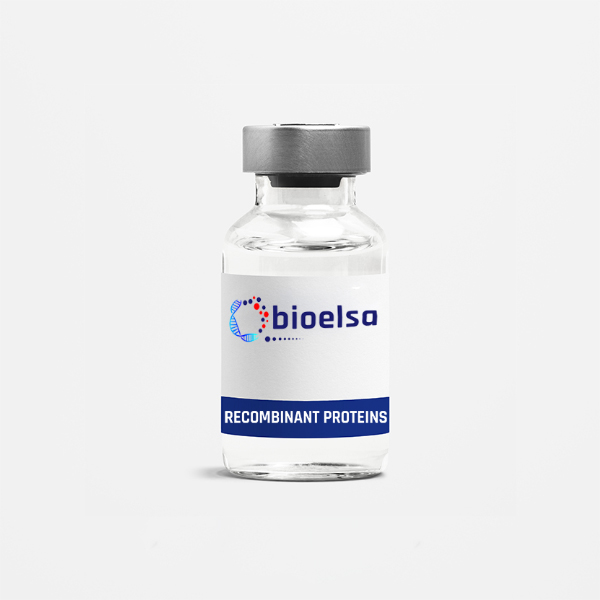| Gene ID |
1950 |
| Accession | P01133 |
| Alternative Name | Urogastrone, EGF<br/>Recombinant Human Epidermal Growth Factor (EGF) |
| Species | Human |
| Source | E. coli |
| Description | Epidermal growth factor (EGF) is a small mitogenic protein that is thought to be involved in mechanisms such as normal cell growth, oncogenesis, and wound healing. This protein shows both strong sequential and functional homology with human type-alpha transforming growth factor (hTGF alpha), which is a competitor for EGF receptor sites. EGF receptors are expressed in almost all types of tissues. Parietal endoderm, mature skeletal muscles, and hematopoietic tissues do not express the receptor. The EGF receptor, designated HER1, is a 170 kDa transmembrane glycoprotein with a length of 1186 amino acids. It is identical with a previously described glycoprotein called SA-7 (species antigen 7). The extracellular receptor domain has a length of 621 amino acids, including 11 glycosylated asparagine residues and 51 cysteine residues. This domain contains the EGF binding site and also binds mammalian TGF-alpha. |
| Accession | P01133 |
| Functions | The ED50 was determined by a cell proliferation assay using balb/c 3T3 cells is ? 0.5 ng/mL, corresponding to a specific activity of ? 2.0 x 10^7 units/mg. |
| Formulation | Recombinant Epidermal Growth Factor was lyophilized from a 0.2 ?m filtered solution in PBS. |
| Solubility | A quick spin of the vial followed by reconstitution in sterile distilled water to a concentration not less than 0.1 mg/mL. This solution can then be diluted into other buffers. |
| Appearance | Lyophilized Powder |
| Molecular Weight | 6.5 |
| Purity | >95% as determined by SDS-PAGE |
| Concentration | <1.0 EU/μg of recombinant protein as determined by the LAL method. |
| Shipping Condition | Ambient Temperature |
| Storage Condition | The lyophilized protein is stable for at least one year from date of receipt at -70?C. Upon reconstitution, this cytokine can be stored in working aliquots at 2? - 8?C for one month, or at -20?C for six months, with a carrier protein without detectable loss of activity. Avoid repeated freeze/thaw cycles. |
